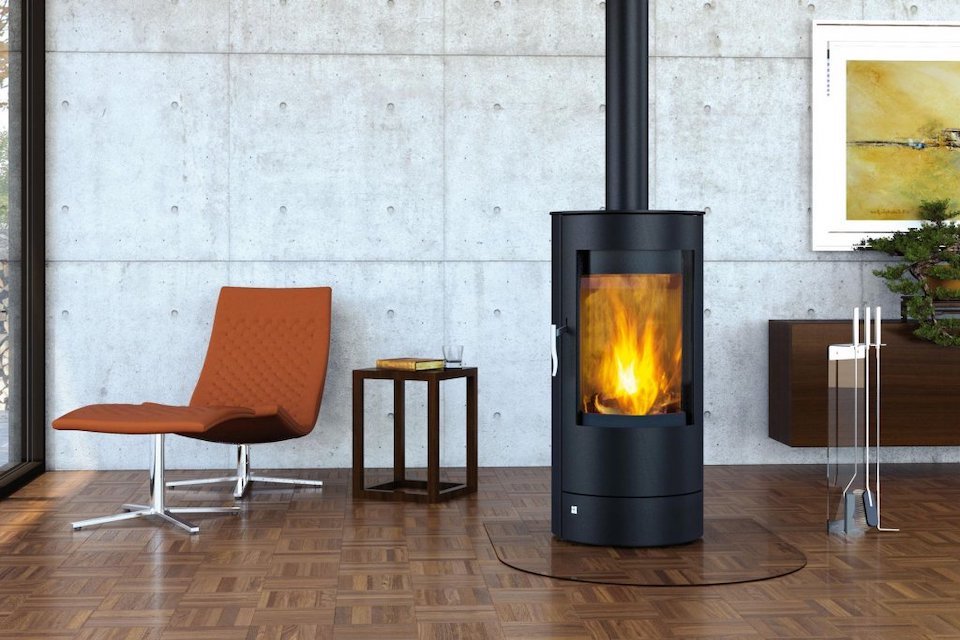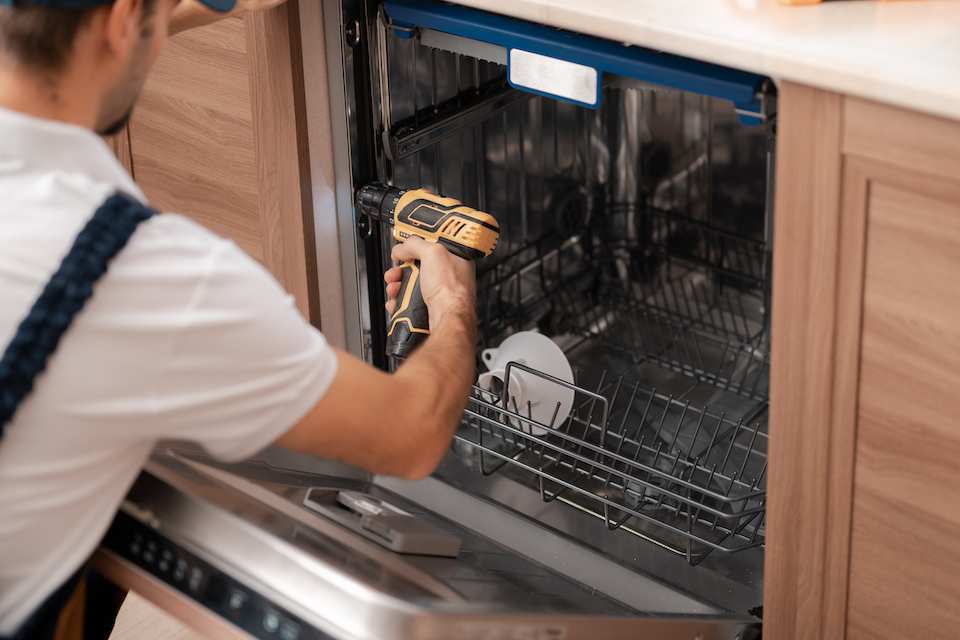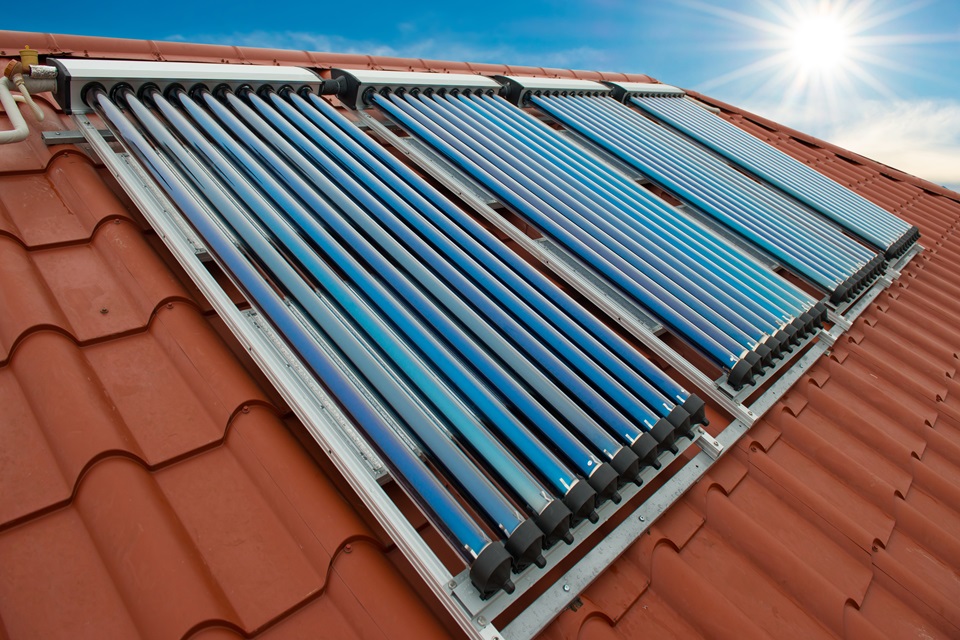How Much is a Biomass Boiler?
Are you interested in learning more about the cost of installing or replacing a biomass boiler?
In this article, we will look at the supply costs, tradesman costs and additional costs of installing a biomass boiler. We will also provide you with information about the different types of biomass boilers and the benefits of a biomass boiler.
A biomass boiler can reduce your energy bills and carbon dioxide emissions.
This type of boiler is a large investment; however, it can reduce your energy bills and carbon dioxide emissions. This is due to the fuel methods that are used to power this type of boiler.
So how much does a biomass boiler installation cost?

You can typically expect a biomass boiler to cost around £3000-£14,000. The cost will depend on the model that you choose to have installed.
Hand-fed furnaces tend to cost much less than automatically-fed biomass boilers.
When purchasing and installing an automatically fed biomass boiler, you can expect to pay around £12,000-£14,000. A hand-fed furnace will typically cost much less, and you could save up to £6000 by choosing this option.
Biomass Boiler Prices
The table below highlights the typical biomass boiler prices:
| Job Description | Average Cost |
|---|---|
| Small manual fed log boiler installation | £3000-£6000 |
| Large manual system installation | £8000-£15,000 |
| Small automatic pellet fed biomass boiler installation | £750-£1200 |
| Large automatic fed biomass boiler installation | £16,000-£22,000 |
- How Much is a Biomass Boiler?
- What are the Supply Costs of Installing a Biomass Boiler?
- What are the Additional Costs of a Biomass Boiler Installation?
- Tradesmen Costs for Installing a Biomass Boiler
- How Long Does It Take to Install a Biomass Boiler?
- Types of Biomass Boiler
- Benefits of a Biomass Boiler
- How Much Does It Cost to Remove a Biomass Boiler?
- FAQs
- Sources
What are the Supply Costs of Installing a Biomass Boiler?
Installing any type of boiler is quite a tedious job that requires some specific knowledge. This also applies to biomass boilers. With this in mind, this type of work is always best left with the professionals and shouldn’t be attempted as a DIY project.

However, if you are interested in purchasing the supplies yourself separately from the contractors, you may be interested in finding out the cost for the supplies alone. Below is a table showing the typical costs that you can expect for various biomass boiler supplies:
| Type of Supply | Supply Cost |
|---|---|
| Wood pellet automated biomass boiler | £12,000-£20,000 |
| Log fuelled manual biomass boiler | £2500-£5000 |
| Wood chip fuelled automated biomass boiler | £5500-£9000 |
| 1 tonne of wood pellets | £200-£300 |
| 1 tonne of logs | £75-£125 |
| 1 tonne of wood chips | £45-£70 |
What are the Additional Costs of a Biomass Boiler Installation?
There are several additional costs that you may want to think about when installing a biomass boiler. Below is a list of the main additional costs that may come up with this type of work:
Installing a Radiator
When you get a biomass boiler installed, you may want to invest in new radiators to ensure your home is heated effectively. The average cost of installing a radiator is around £110-£470. The total cost will depend on the type of radiator and the size of the radiator.
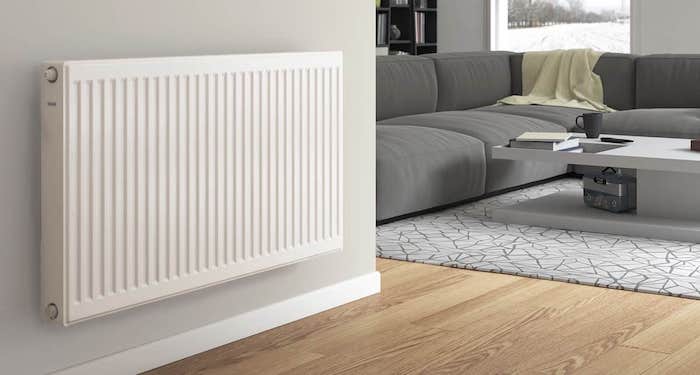
Installing Underfloor Heating
A further way to effectively heat your home is through the installation of underfloor heating. Underfloor heating costs can vary by a large amount depending on the type of underfloor heating you have installed and the size of the area. On average, you can expect to pay around £700-£5000 for underfloor heating.
Installing a Fireplace
Installing a fireplace is another great way to keep your home warm and cosy during the winter months. The average cost for a fireplace installation will vary depending on the type of fireplace, the difficulty of the job, and the size of the fireplace. The average cost of installing a fireplace in the UK is around £200-£5000.
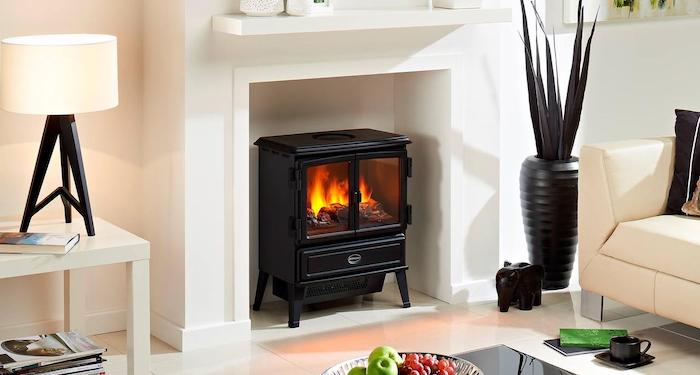
Tradesmen Costs for Installing a Biomass Boiler
If you are looking to purchase the materials separately, you may be interested in learning how much it will cost for just the labour part of the job. In this section, we will take a look at those costs.
On average, you can expect to pay around £200-£250 per day for professional biomass boiler installers to build a biomass boiler for you. Since the work will usually take about 1-2 days to complete, you can expect to pay £200-£500 in total.

The actual price you pay for the work will depend on the contractor you choose to complete the work and where your property is located in the UK. Those based in and around the London area can expect to pay more than those based in the North or other parts of the UK.
How Long Does It Take to Install a Biomass Boiler?
The time it takes to install a biomass boiler will depend a lot upon the type and size of the boiler you are installing.
A small hand-fed biomass boiler should take no more than around 6-12 hours to completely install.

If you are installing a large automatic boiler, this will be more difficult to install, and you can expect this work to take around two days to complete.
If any issues arise or the area is difficult to access, it could take a little longer to install.
Types of Biomass Boiler
There are several different types of biomass boilers. To help you decide on the type of boiler that is right for you, you will need to consider the advantages and disadvantages of each type. Below is a list of the different types of biomass boilers with some information on each:
Log-Fed Biomass Boiler
Log-fed biomass boilers are usually more cost-effective than automatic versions. These boilers are great for those who have access to firewood. The wooden logs need to be hand-fed into the combustion chamber. This is more time-consuming than an automatic machine but comes at a lower cost.
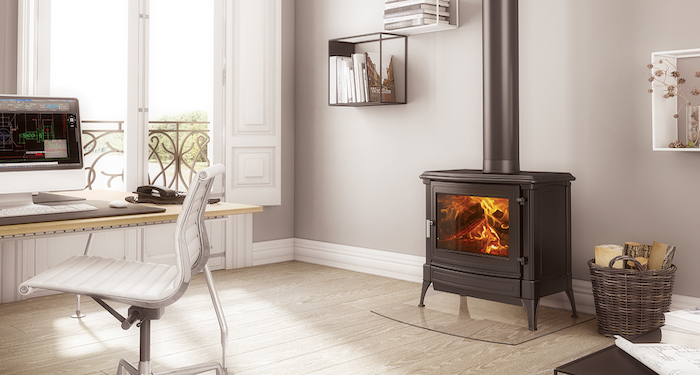
These systems can be very cost-effective with a proper buffer tank. They are especially effective at helping larger households reduce their energy bills. You can expect to pay around £6000-£8000 for this type of biomass boiler.
Moving Grate Biomass Boiler System
The moving grate biomass boiler system is the most expensive type of biomass boiler to install. It is a large system with a much larger combustion chamber, so it requires a lot more space. It also has many more components than other systems.
The fuel for this type of chamber is mixed inside with mechanical grates. These grates remove any excess moisture from the fuel. When the humidity is removed from the fuel, it can burn much more effectively and produce more heat.
These systems are quite expensive, and you can expect to pay around £12,000-£14,000 to install this type of biomass boiler.
Plane Grate Biomass Boiler System
Plane grate biomass boilers are great for using drier fuel materials with little moisture content. This system has a much small combustion chamber, so it can be installed in most spaces as it doesn’t take up too much room.

However, this smaller chamber means that higher-quality fuels must be inserted into the furnace manually with much lower moisture content. This usually means that this boiler is more expensive to run as it requires higher quality and more expensive fuels. You can expect to pay around £5000-£8000 for this type of biomass boiler.
Stoker Burner Biomass Boiler System
A stoker burner system is a more straightforward machine to operate when compared with most other biomass boiler systems. This type of biomass boiler is more accessible, and the cost of purchasing and installing this type of biomass boiler is generally more affordable.
These biomass boilers also tend to have a smaller combustion chamber, which means that they can be installed in smaller areas. However, a smaller chamber means higher-quality fuels are required. You can expect this type of biomass boiler to cost around £4000-£6000.
Batch Fired Biomass Boiler System
A batch fired biomass boiler system requires more manual work than most other boiler systems as the fuel source needs to be fed into the combustion chamber every day. The fuel is burned in larger batches rather than continuously. It features individual fans that ensure all of the matter is combusted.
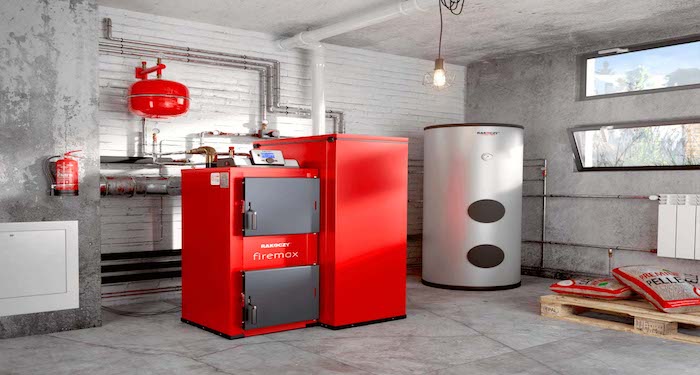
The downside to these boilers is that they tend to be less efficient when compared with other biomass boilers. They also require more effort from the owner since the fuel has to be manually fed into the chamber. A batch fired biomass boiler system is usually around £3000-£7000.
Benefits of a Biomass Boiler
There are several benefits to installing a biomass boiler. Below is a list of the main advantages of this type of boiler:
Renewable Energy Source
Coal, gas, and oil can take millions of years to form, and we are using up the current supply faster than it’s being produced. This means that the supply is becoming increasingly limited. As long as plants continue to grow, there is always fuel available for a biomass boiler.
Carbon Neutral System
When a plant dies of natural causes, any carbon dioxide that it has absorbed gets released back out into the atmosphere. This is no different to wood being burned inside a biomass boiler. However, oil and gas boilers increase the levels of carbon in the atmosphere, which has a negative effect on our environment.
Cheap Running Costs
Compared to other fuel types such as electricity and oil, biomass fuel is a lot cheaper, and it also costs slightly less than gas. A biomass boiler is very beneficial to homeowners that have a constant supply of wood. In these cases, the cost of fuel can quickly become a thing of the past.

Very Efficient
Biomass boilers are very efficient heating systems. These boiler systems can reach efficiency levels of around 90%. This is similar to gas and oil boilers.
Government Payments
Thanks to the Renewable Heat Incentive, some people may be eligible for biomass boiler grants with this type of boiler. This means that you may be able to get payments from the government.
How Much Does It Cost to Remove a Biomass Boiler?
If you are thinking about removing a biomass boiler from your property and switching to a conventional model instead, then you may be interested in learning the costs involved with removing a biomass boiler.
It is recommended that you hire a professional to remove your biomass boiler for you as it can be quite a complicated process that requires a lot of work. You can expect to pay a tradesperson around £200-£250 per day to remove a biomass boiler for you.

This type of work will most commonly take less than a day to complete. However, it may take a little bit longer depending on the size of the boiler and whether any issues arise during the removal process.
FAQs
Q: What size biomass boiler do I need?
A: The size of the biomass boiler that you need will depend a lot on the size of your property. Generally, the larger your home is, the higher demand there is for domestic heating. Therefore, you will need a larger boiler to supply a sufficient amount of heat to the property.
Q: How does a biomass boiler work?
A: Biomass boilers work by burning organic materials such as wood or other biological matters. Burning this matter produces enough heat to fuel the entire heating system.
Q: How much fuel does a biomass boiler use?
A: The amount of fuel that the biomass boiler uses will depend on the model of the boiler, the type of system, your household usage, and the size of your biomass boiler. On average, you can expect to use around 10 tonnes of fuel each year.
Q: What maintenance do biomass boilers need?
A: Boilers that don’t use fossil fuels generally require more maintenance than fossil fuel boilers, which only need annual maintenance.
An automated pellet system will need to have a weekly inspection to check the boiler and the fuel feed system to remove all of the soot.
Just 1% of soot build-up can result in a 10% reduction in fuel efficiency. The flue tubes will also need to be cleaned regularly with a brush.
Q: Do I need planning permission to install a biomass boiler at my property?
A: Installing a domestic biomass boiler does not normally require any planning permission unless it is being installed in a listed building.
However, you may need planning permission for the new boiler house, the fuel store, or even the new flue. If you are unsure, it is best to check with your local authority before going ahead with the work.

